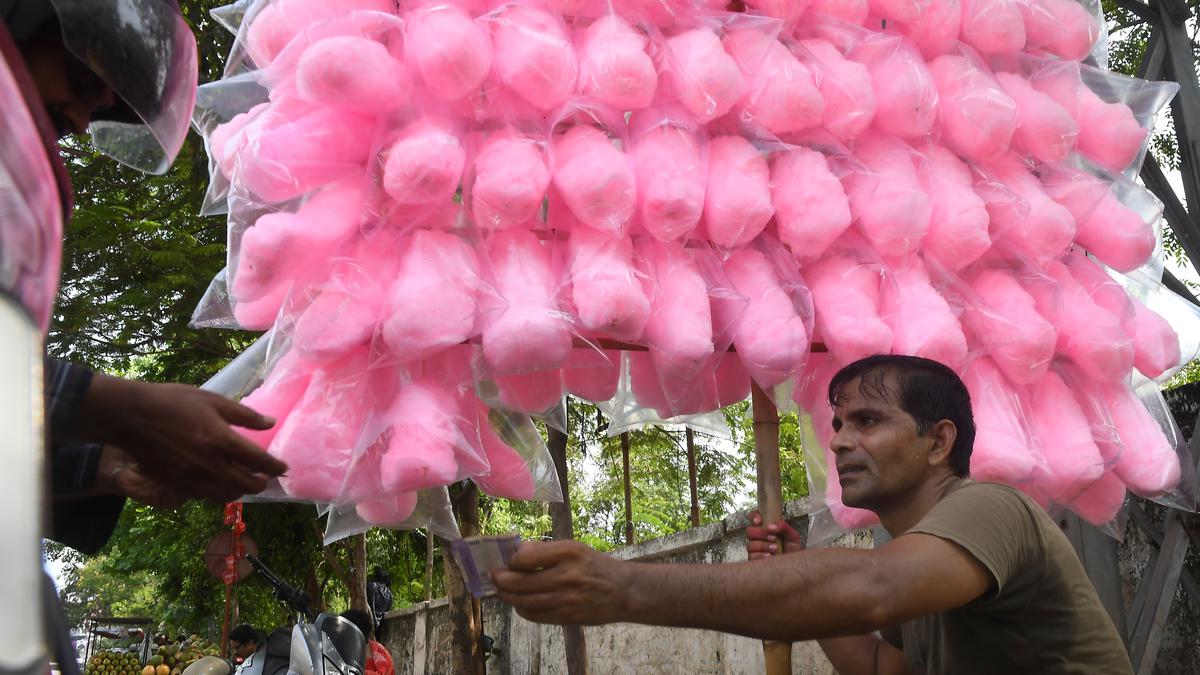- Karnataka has become the third state in South India to ban the use of particular colouring chemicals in cotton candy and gobi manchurian due to their known negative effects.
Context:
- The government aims to raise awareness among manufacturers and encourages customers to be mindful of their consumption habits.
- The Food Safety and Standards Act, 2006 penalises persons who use forbidden chemical substances in food items with a fine of at least ₹10 lakh and a minimum seven-year jail term, up to life imprisonment.
Key findings from the sample testing?
- Presence of harmful chemicals: Laboratory testing indicated the presence of hazardous substances in several samples taken from the state.
- Cotton Candy Samples: Of the 25 cotton candy samples gathered, 15 were found to be harmful because they had additional colours, while the other ten were deemed safe since they were free of added colours.
- Gobi Manchurian Samples: Of the 171 samples of gobi manchurian collected, 107 were pronounced dangerous due to the presence of added colours, whereas 64 were deemed safe because they did not contain added colours.
What compounds were harmful?
- Hazardous Chemicals: The dangerous samples of cotton candy contained amounts of sunset yellow, tartrazine, and rhodamine-b, while unsafe gobi Manchurian samples had tartrazine, sunset yellow, and carmoisine. Rhodamine-b, a potential carcinogen, has previously been outlawed.
- Restrictions on Tartrazine: Although tartrazine is an acceptable artificial food colour, there are certain restrictions on its use. It can only be used in particular packaged food items and at prescribed amounts. It cannot be used with freshly cooked foods.
- Health Concerns: The Food Safety Commissioner emphasised that long-term consumption of snacks containing artificial colours might result in serious diseases such as cancer, emphasising the need of the prohibition in protecting public health.
What are the penalties?
- Rule 16 of the Food Safety and Standards Act forbids the use of artificial colours in the making of gobi manchurian.
- specified Limits for Food Colours: While certain food colours are permissible within specified limits, non-permitted colours such as rhodamine-b should not be used in cotton candy.
- Penalties for offenders: Violators face harsh penalties, including the cancellation of commercial licences, large fines, and imprisonment. The Food Safety and Standards Act penalises persons who use forbidden chemical substances in food items with a minimum fine of ₹10 lakh and a seven-year jail term, which can be extended to life imprisonment.
Way Forward:
- To enforce and monitor compliance with the ban on dangerous chemicals and artificial colours, health safety officers may perform random checks.
- Public Awareness Campaigns: The government will continue to educate manufacturers and consumers about the dangers of hazardous chemicals and artificial colours in food goods.
- Regulatory Review: Existing food safety regulations and standards may be reviewed in order to enhance controls and provide complete coverage of potentially harmful foods other than gobi manchurian, such as kebabs, which may contain colouring chemicals.
- Collaboration with players: Effective implementation and enforcement of the prohibition will need collaboration among government agencies, food manufacturers, and other food industry players. This may include conversations, partnerships, and dialogues to address issues and assure regulatory compliance.
Source: https://www.thehindu.com/news/national/other-states/why-has-karnataka-banned-certain-colouring-agents-explained/article67973700.ece#:~:text=A%20ban%20is%20already%20in,are%20restrictions%20on%20its%20usage.

